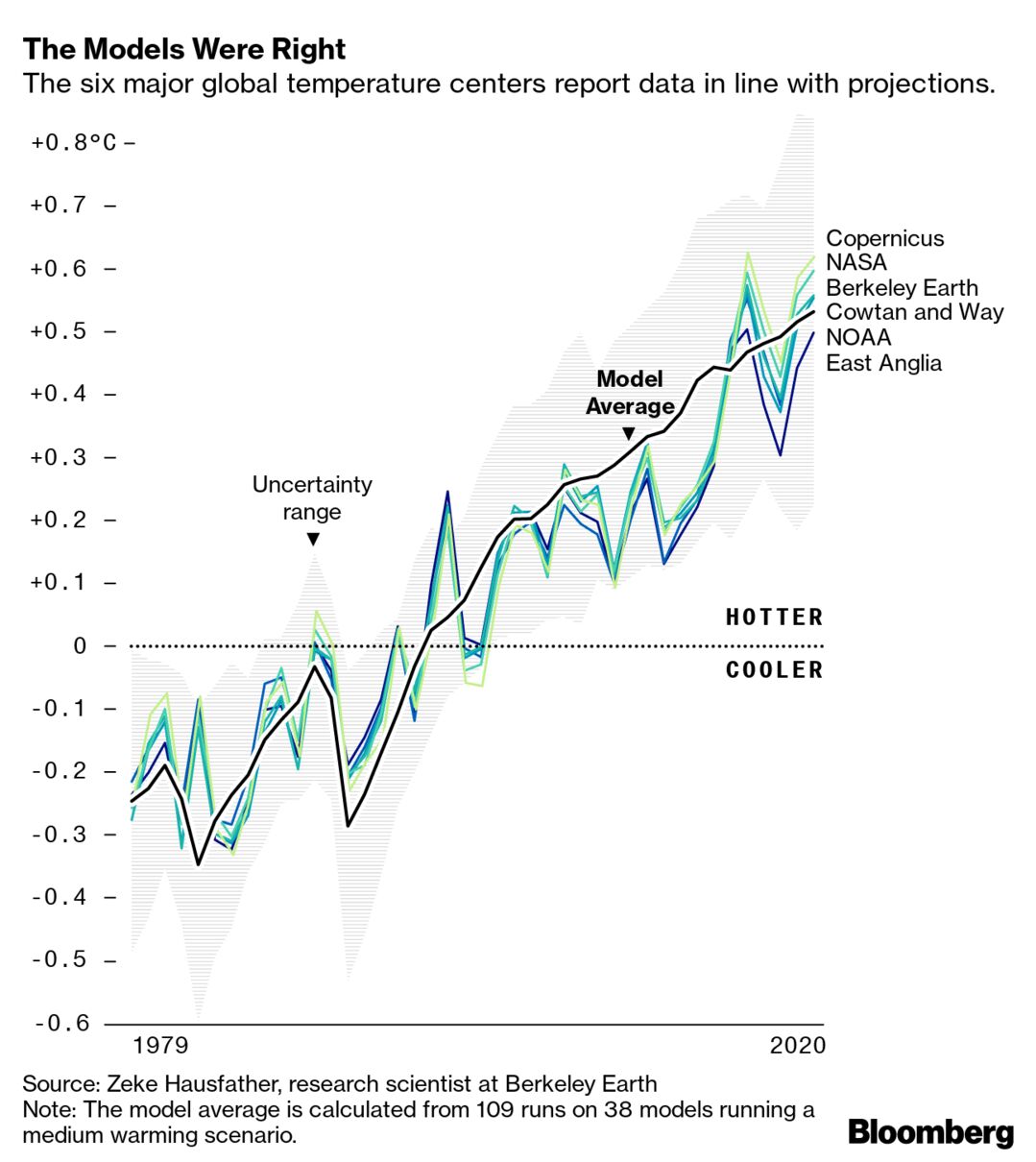The decade ending in 2020 was the hottest in recorded history, with temperatures higher than any other period in at least two millennia and possibly much longer. The main culprit behind the extreme warming, atmospheric carbon dioxide, has reached a level not seen in at least 3 million years. The last seven years are now the warmest since measurement began in the 19th century. In five major temperature datasets updated on Thursday, 2020 finished in a statistical tie with 2016 as the hottest year on record, coming in about 1.2° Celsius hotter than the 19th century. Four of the five research centers showed 2020 slightly cooler than 2016, but within the uncertainty window. The year 2019 is a very close third.
Heatwaves, wildfires, more intense storms, and changes in rain and snow all point to a world already facing heightened danger. With each passing year, scientists grow more confident in attributing many of these weather anomalies to the heat trapped in the atmosphere and oceans. “When the ingredients for a hurricane come together, we’re seeing that these hurricanes are intensifying a lot faster,” Sánchez-Lugo said. “They’re moving slower, and the precipitation rates associated with these hurricanes are increasing as well.”
The record-high temperatures of 2016 had temporary help from El Niño, the naturally occurring Pacific Ocean phenomenon that raises thermometers. That wasn’t the case for 2020, which not only lacked the irregular warming trend but also featured an appearance from El Niño’s cooling counterpart, La Niña, beginning in August. January through November each ranked among the top four warmest occurrences of that month; December came in as the eighth warmest, helping lower the annual average.
Ocean temperatures also hit a new high in 2020, according to a separate study published this week.

Temperature data has borne out many of the projections made by climate researchers. The modeling work continues in the climate science community, with the next reports from the United Nations-backed Intergovernmental Panel on Climate Change expected this year and next.
“The models did as well as could be expected in correctly predicting what was to come and what has now occurred,” said Gavin Schmidt, director of NASA’s Goddard Institute for Space Studies, which released the space agency’s temperature data on Thursday. In NASA’s results 2020 just edges out 2016 to set a new record, within the margin of error.
NOAA’s NCEI, Berkeley Earth, the University of East Anglia’s Climate Research Unit, and the “Cowtan and Way” record started by two scientists, all found 2020 to come in very close behind 2016. A sixth research group, the European Union’s Copernicus Climate Change Service called 2020 and 2016 a tie. There’s no disagreement that the 10 hottest years on record have all occurred since 2005.
